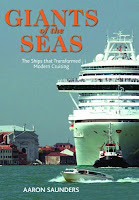Oriana Fallaci - journalist
Writer known for exhaustively probing interviews
Oriana Fallaci, who was at different times in her career one of Italy’s most respected journalists and also one of the most controversial, was born in Florence on June 29, 1929. As a foreign correspondent, often reporting from the world’s most hazardous regions in times of war and revolution, Fallaci interviewed most of the key figures on both sides of conflicts. Many of these were assembled in her book Interview with History, in which she published accounts of lengthy conversations, often lasting six or seven hours, with such personalities as Indira Gandhi, Golda Meir, Yasser Arafat, Zulfikar Ali Bhutto, Willy Brandt, Shah of Iran Mohammad Reza Pahlavi, Henry Kissinger and the presidents of both South and North Vietnam during the Vietnam War. Others she interviewed included Deng Xiaoping, Lech Wałęsa, Muammar Gaddafi and the Ayatollah Khomeini. Read more…
______________________________________
Masaniello - insurgent
Fisherman who led Naples revolt
The 17th century insurgent known as Masaniello was born on June 29, 1620 in Naples. A humble fishmonger’s son, Masaniello was the unlikely leader of a revolt against the Spanish rulers of his home city in 1647, which was successful in that it led to the formation of a Neapolitan Republic, even though Spain regained control within less than a year. The uprising, which followed years of oppression and discontent among the 300,000 inhabitants of Naples, was sparked by the imposition of taxes on fruit and other basic provisions. Masaniello - real name Tommaso Aniello - was a charismatic character, well known among the traders of Piazza Mercato, the expansive square that had been a centre of commerce in the city since the 14th century. Born in a house in Vico Rotto al Mercato, situated close to the city’s main port, he followed his father into fish trading. Read more…
_______________________________________
Elizabeth Barrett Browning dies in Florence
Romantic poet produced some of her best work after fleeing to Italy
English poet Elizabeth Barrett Browning died on June 29, 1861 in Florence. She had spent 15 years living in Italy with her husband, the poet Robert Browning, after being disinherited by her father who disapproved of their marriage. The Brownings’ home in Florence, Casa Guidi, is now a memorial to the two poets. Their only child, Robert Weidemann Barrett Browning, who became known as Pen, was born there in 1849. Barrett Browning was one of the most prominent English poets of the Victorian era and was popular in both Britain and the United States during her lifetime. From about the age of 15 she had suffered health problems and therefore lived a quiet life in her father’s house, concentrating on her writing. A volume of her poems, published in 1844, inspired another writer, Robert Browning, to send her a letter praising her work. Read more…
Giorgio Napolitano – 11th President of Italy
Neapolitan was concerned about the development of southern Italy
Giorgio Napolitano, who served as the 11th President of the Republic of Italy, was born on June 29, 1925 in Naples. He was the longest serving president in the history of the republic and the only Italian president to have been re-elected. He graduated in law from Naples University in 1947, having joined a group of young anti-fascists while he was an undergraduate. At the age of 20, Napolitano joined the Italian Communist Party. He was a militant and then became one of the leaders, staying with the party until 1991 when it was dissolved. He then joined the Democratic Party of the Left. Napolitano was elected to the Chamber of Deputies for the first time in 1953 and continued to be re-elected by the Naples constituency until 1996. His parliamentary activity focused on the issue of southern Italy’s development and on national economic policy. Read more…
_______________________________________
Federico Peliti - catering entrepreneur and photographer
Italian became important figure in British Colonial India
Federico Peliti, whose skills as a chef and pastry-maker led him to spend a large part of his life in India under British colonial rule, was born on June 29, 1844 in Carignano, a town in Piedmont about 20km (12 miles) south of Turin. He was also an accomplished photographer and collections of his work made an important contribution to the documentary history of the early years of British rule in India. The restaurant Peliti opened in Shimla, the so-called summer capital of the British Empire in India, became a favourite with colonial high society and was mentioned in the writings of Rudyard Kipling and others. Peliti’s family hailed from Valganna, near Varese in Lombardy. They had mainly been surveyors and Peliti initially studied sculpture in Turin before being diverted by the Third Italian War of Independence, in which he participated as a cavalryman. Read more…
_______________________________________
Book of the Day: Interviews With History and Power, by Oriana Fallaci
Interviews with History and Power is a posthumous compilation of this award-winning and best-selling writer and journalist's seminal, historic interviews. Oriana Fallaci was granted access to countless world leaders and politicians throughout her remarkable career. Considering herself a writer rather than a journalist, she was never shy about sharing her opinions of her interview subjects. Her most memorable interviews - some translated into English for the first time - appear in this collection, including those with Ariel Sharon, Yassir Arafat, the former Shah of Iran, Lech Walesa, the Dalai Lama, Robert Kennedy, and many others. Also featured is the famous 1972 interview in which she succeeded in getting Henry Kissinger to call Vietnam a "useless war" and to describe himself as "a cowboy." To this day he calls the Fallaci interview "the most disastrous conversation I ever had with the press."
Oriana Fallaci was an Italian journalist and author. A member of the Italian resistance movement during World War II, she had a long and successful journalistic career. She became famous worldwide for her coverage of war and revolution, and her "long, aggressive and revealing interviews" with many world leaders during the 1960s, 1970s, and 1980s.

.jpg)
%20(2).jpg)













.jpg)


.jpg)
